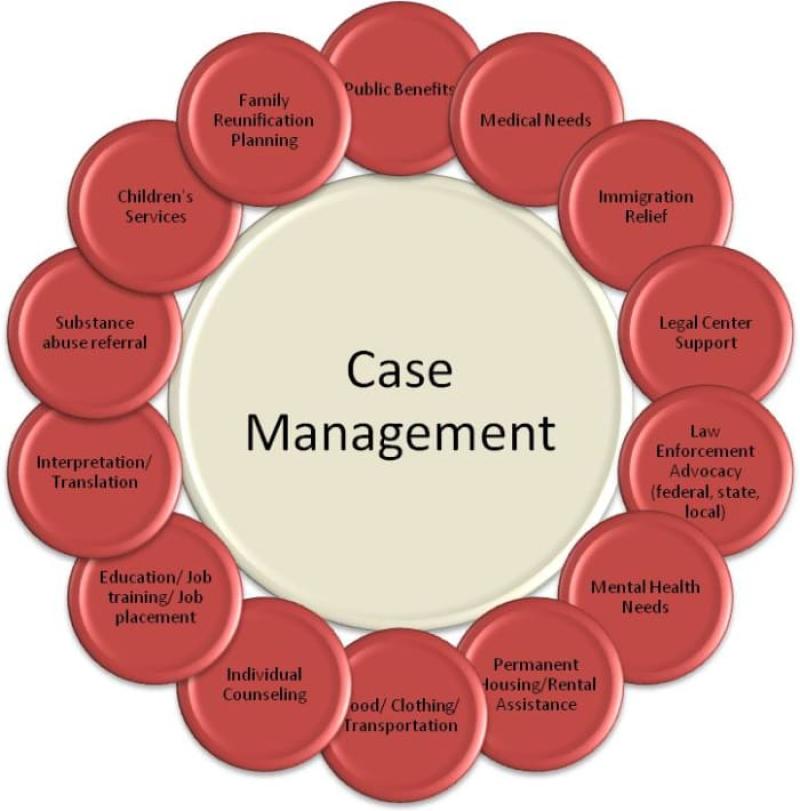What are the different types of case management?
Case management is a broad field with various types, each tailored to specific settings, populations, and goals. Here are different types of case management commonly employed across different sectors:
Healthcare Case Management:
- Focuses on coordinating and optimizing healthcare services for individuals, including patients with chronic illnesses or complex medical needs.
- Involves collaboration with healthcare providers, specialists, and other professionals to ensure comprehensive and integrated care.
Social Services Case Management:
- Addresses the social, economic, and psychosocial needs of individuals or families.
- Involves connecting clients to social services such as housing assistance, food programs, employment services, and mental health resources.
Mental Health Case Management:
- Targets individuals with mental health challenges or disorders.
- Includes coordinating mental health treatment, therapy, medication management, and community support services.
Rehabilitative Case Management:
- Focuses on individuals with disabilities, aiming to enhance independence and quality of life.
- Involves coordinating rehabilitation services, vocational training, and community integration.
Legal Case Management:
- Aids individuals involved in legal processes, such as court cases or legal disputes.
- Coordinates legal services, ensures compliance with court orders, and supports clients through legal proceedings.
Child Welfare Case Management:
- Addresses the needs of children and families involved with child protective services.
- Focuses on ensuring child safety, permanency, and well-being through coordination of services and support.
Aging or Elderly Case Management:
- Targets the unique needs of older adults, including healthcare, housing, and social support.
- Coordinates services to promote aging in place, caregiver support, and overall well-being.
School-Based Case Management:
- Supports students in educational settings, addressing academic, behavioral, and social needs.
- Involves collaboration with educators, parents, and community resources to enhance student success.
Substance Abuse Case Management:
- Addresses the needs of individuals struggling with substance abuse or addiction.
- Coordinates access to treatment programs, counseling, and support services for recovery.
Homelessness Case Management:
- Focuses on individuals experiencing homelessness, aiming to secure stable housing and address underlying issues.
- Involves coordinating shelter services, housing assistance, and support for mental health or substance abuse challenges.
Vocational Case Management:
- Assists individuals in identifying career goals, obtaining job training, and securing employment.
- Focuses on skills development, job placement, and ongoing support for career advancement.
HIV/AIDS Case Management:
- Targets individuals living with HIV/AIDS, addressing medical, social, and support needs.
- Involves coordinating medical care, medication adherence, and access to community resources.
Disaster Case Management:
- Activated in the aftermath of natural disasters or emergencies.
- Coordinates emergency services, shelter, and long-term recovery efforts for affected individuals and communities.
These are just a few examples, and case management can take on various forms depending on the specific needs of the individuals or populations served. The common thread across these types is the coordination of services, resources, and support to help individuals achieve their goals and improve their overall well-being.
The world of case management is a vibrant tapestry woven with diverse approaches and methodologies. Understanding these variations is crucial for selecting the right "tool" when crafting support for different needs. Let's delve into the fascinating spectrum of case management practices:
1. Exploring the Varieties:
- Individual vs. Group: Focusing on single clients or working with families and communities, each approach demands tailored strategies and considerations.
- Short-Term vs. Long-Term: Addressing immediate needs or providing ongoing support require different levels of resource allocation and planning.
- Direct vs. Indirect Services: Case managers directly assisting clients or facilitating access to external resources offer distinct pathways to achieving desired outcomes.
- Specialized vs. Generalist: Focusing on specific populations like mental health or child welfare versus serving wider demographics necessitates specialized knowledge and skills.
- Clinical vs. Strengths-Based: Emphasizing diagnoses and treatment or empowering clients through their capacities can be complementary or contrasting depending on individual needs.
- Collaborative vs. Directive: Partnering with clients as equal decision-makers or guiding them with expert knowledge necessitate different communication styles and power dynamics.
2. Beyond Labels:
Remember, these categories are not rigid boxes. Many case management practices blend elements from various approaches to create a unique intervention tailored to specific clients and contexts. This flexibility allows for dynamic responses to complex challenges.
3. Choosing the Right Approach:
Selecting the optimal approach hinges on several factors:
- Client Needs: Their challenges, goals, and preferred level of engagement dictate the type and intensity of support needed.
- Available Resources: The case manager's expertise, available funding, and community resources influence the feasibility of different interventions.
- Organizational Context: The organization's mission, values, and target population guide the choice of appropriate methods and frameworks.
Remember: No single approach is universally "best." Choosing the right fit involves careful consideration of all relevant factors and embracing the flexibility to adapt your intervention as needed.
Feel free to ask further questions! I'm here to help you navigate the intricate world of case management, explore specific approaches in more detail, and ultimately choose the path that leads to effective support and positive outcomes for your clients and organization.













